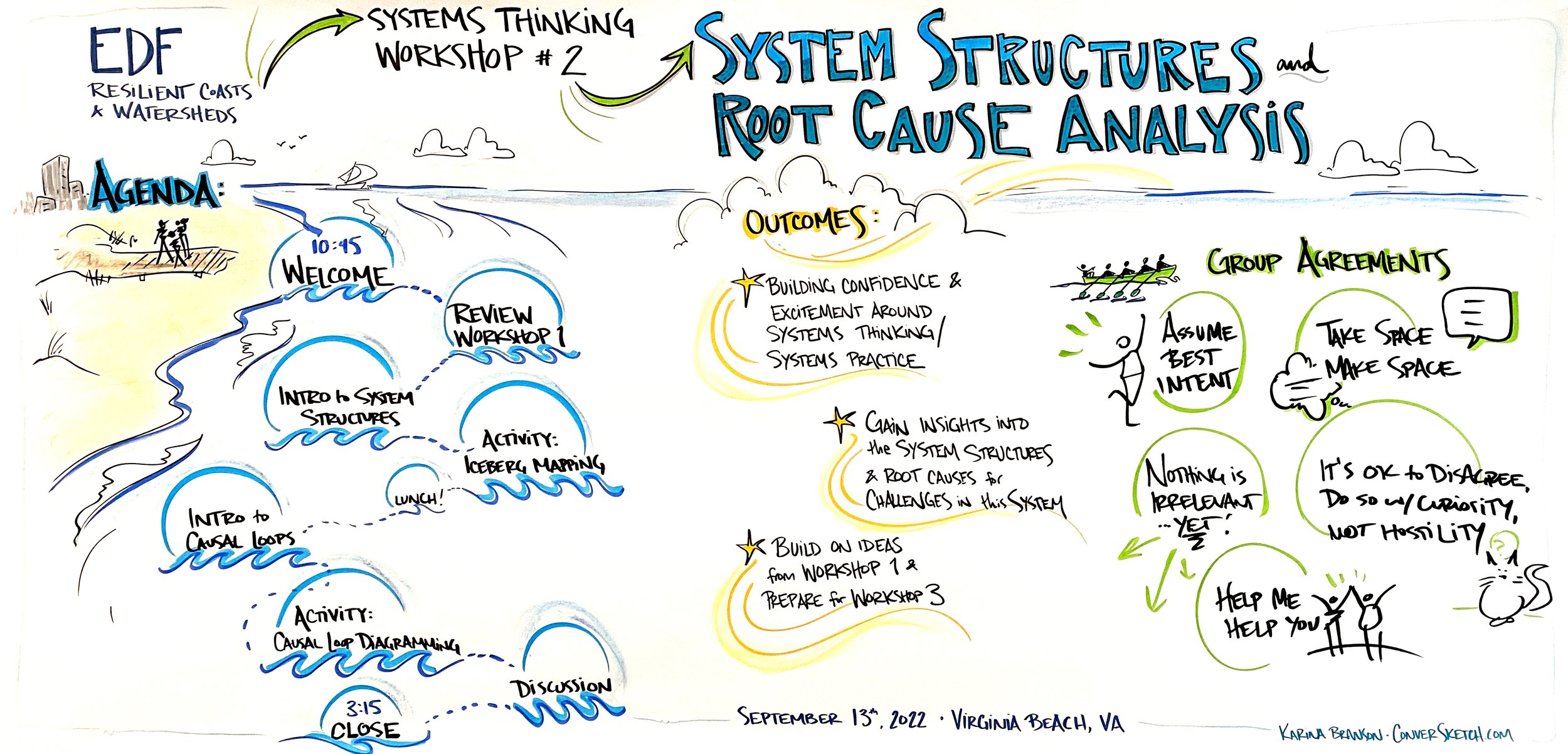September brought fascinating work with clients across the country and across sectors, but one theme kept emerging organically. This is one of my favorite things about being a graphic facilitator – we get to listen, learn and make connections.
This month I keep hearing a similar idea from a team working on resilient coasts and watersheds, to social and ecological scientists working in mountain systems around the world, to community-led conservation practitioners:
The same small perspective just doesn’t cut it. To really solve problems for our environment and people, we need to look at challenges from a larger perspective, like a watershed. If we’re only looking to solve problems for one community or piece of the ecosystem, there are bound to be repercussions or solutions that don’t last. Looking for system connections
Is there a way for you to take a “watershed” approach to a problem or challenge to look for a solution in a place you may not have thought of?
Once again, thank you from my heart and soul for your support, great senses of humor, brilliant minds, collaboration and what you're each doing to make the world a better place.
Cheers,
Where in the World is ConverSketch?
Seattle, WA: Facilitating with the Wilderness Society’s Community-Led Conservation team as they explore what it would take to create a supportive, inclusive, and effective community of practice.
Basalt, CO: With mountain researchers from around the world exploring the potential of creating a new alliance to elevate indigenous and mountain community voices for better climate policy.
Denver, CO: With the Attainment Network learning and sharing about different career pathways to support students who may not choose to or think they can attend university.
Virginia Beach, VA: With the Environmental Defense Fund kicking off a series of systems thinking workshops for the Resilient Coasts and Watersheds team – the rest of the workshops are virtual throughout the fall.





